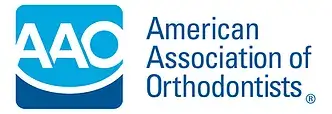Did you know that 92% of adults aged 20 to 64 have had cavities in their permanent teeth? This shows how common tooth decay is. Cavities are decayed areas in teeth that turn into small openings or holes. They affect people of all ages, even babies with their first teeth.
Plaque buildup starts the cavity process. It’s a sticky film full of bacteria that sticks to teeth. Eating sugary and starchy foods makes these bacteria produce acids. These acids can wear away tooth enamel, causing cavities.
Without good oral care, plaque turns into tartar, which only a dentist can remove. This leads to cavities that can cause toothaches, infections, and even tooth loss if not treated.
But, you can prevent cavities with regular dental check-ups, brushing and flossing, and fluoride treatments. By knowing the causes and taking action, you can keep your teeth healthy and avoid cavities.
Key Takeaways
- 92% of adults aged 20 to 64 have experienced dental caries.
- Cavities are decayed areas in teeth that form small openings or holes.
- Consumption of sugary and starchy foods promotes plaque buildup, leading to tooth decay.
- Proper oral health care, including regular dental visits, is essential for cavities prevention.
- Fluoride treatments can help strengthen tooth enamel and prevent cavities.
Poor Oral Hygiene
Poor oral hygiene leads to cavities. It’s key to have good dental care routines. This includes regular brushing and flossing to keep your mouth healthy.
Not taking care of your teeth lets plaque build up fast. This sticky film of bacteria can cause tooth decay. Here are some common mistakes that make teeth prone to cavities:
- Skipping regular toothbrushing sessions, especially after meals.
- Insufficient brushing time, with less than the recommended two-minute duration.
- Neglecting to use mouthwash, which can help reduce plaque buildup.
- Failing to clean the tongue, where bacteria can also accumulate.
By following good dental care habits, like proper brushing and regular flossing, you can lower your risk of cavities. These tips will help keep your teeth strong and healthy for a long time.
Dietary Choices and Habits
Diet and habits are key to keeping your teeth healthy. Foods like ice cream, cake, and dried fruit are bad for your teeth. They feed harmful mouth bacteria, causing plaque and tooth decay.
Drinks like soft drinks are also harmful because they are acidic. These drinks can wear down tooth enamel over time. It’s important to eat foods that are good for your teeth to keep them strong.
Snacking too much can lead to dental issues. When you snack, food bits stay in your mouth, giving bacteria a chance to make acid. This is a big problem if you snack on sugary or sticky foods.
To eat better for your teeth, add fresh fruits and veggies to your diet. They clean your teeth naturally and give you important nutrients. Cutting down on sugary and acidic foods and choosing healthier snacks can help prevent cavities and boost your dental health.
Medical and Physical Factors
Medical conditions and physical factors greatly affect cavity formation. A dry mouth, caused by less saliva, raises the risk of cavities. Saliva is key as it cleans away food bits and fights off bad bacteria.
Many things can lower saliva production. This includes medicines, chemotherapy, radiation, and certain health issues like GERD. GERD sends stomach acid up into the esophagus, which can harm teeth over time.
Eating disorders like anorexia and bulimia also harm tooth enamel, leading to cavities. When enamel wears away, teeth become more prone to decay. Teeth grinding, or bruxism, can also damage enamel, making teeth more likely to get cavities. Weak enamel and genetics add to this risk.
Changes in lifestyle or routine can also affect cavity risk. Stress or diet changes can indirectly hurt oral health. This shows how medical and physical factors are linked to cavities.
At times, good oral health means getting dental fillings. Fillings fix damaged teeth and stop decay. This shows why dealing with health issues that affect teeth is important for overall health.
Recognizing and Addressing Cavities
Finding cavities early is tough because they start as white spots on teeth. These spots can turn brown or black. They don’t spread out like regular stains do, but stay in one spot.
Early signs include mild to sharp pain when eating sweets, hot, or cold foods. You might see holes, pits, or spots on your teeth. Feeling pain when you bite down is also a clue. Seeing these signs means it’s time to visit the dentist.
At first, cavities might be fixed with fluoride treatments and better oral hygiene. But if they get worse and hit the dentin, you might need fillings or crowns. Not treating cavities can lead to a lot of pain, infections, and even losing a tooth, which might mean it has to be pulled.
Before you can get braces, addressing cavities comes first. So, it is important to address cavities right away and implement preventive measures before getting them.
Conclusion
Cavities, also known as tooth decay, are a big threat to our dental health. It’s important to know the main causes like bad oral hygiene, poor diet, and certain health conditions. Regular dental check-ups are key in finding and treating cavities early.
Good oral hygiene is key to preventing cavities. Brushing your teeth twice a day with fluoride toothpaste and flossing often helps a lot. Also, eating foods low in sugar and choosing healthier snacks can make your teeth stronger.
Seeing a dentist is very important. Regular visits and cleanings help spot and treat cavities early. By knowing what causes cavities and taking steps to prevent them, we can keep our smiles healthy for a long time.








